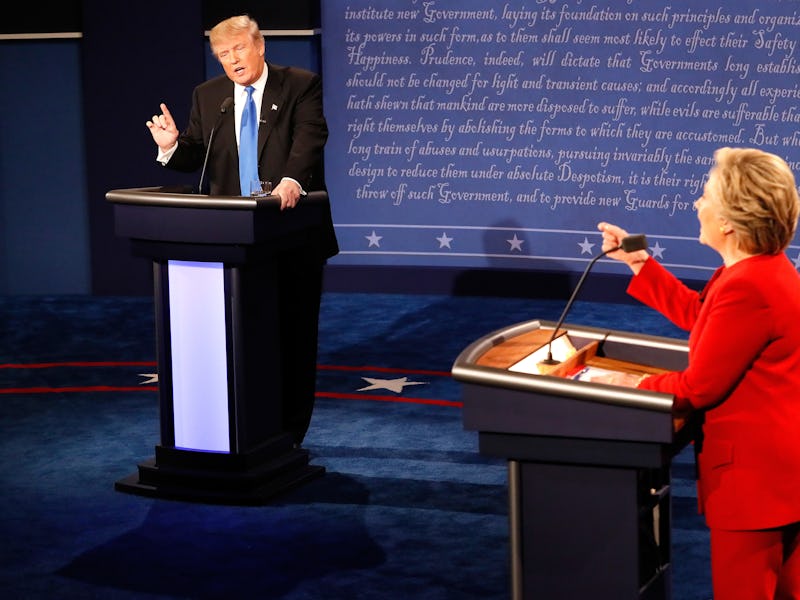New 'Manterrupting' App Tracks How Often Men Interrupt Women
It listens to conversations and logs interruptions.

Manterrupting. It’s a clunky, somewhat tacky-sounding term, but it strikes at the nature of a genuine and often unrecognized problem. Studies have shown that men are more likely to interrupt women than the other way around. Many people — both men and women — don’t even realize these interruptions are happening, but they’re the result of an unconscious, sexist bias. A new app, Woman Interrupted, released just in time for International Women’s Day, aims to change that.
Created by the Brazilian company BETC São Paulo, Woman Interrupted operates off of a very simple premise. It wants to help users identify, learn, and prevent instances of “manterruption” in their daily lives. It does so by discreetly listening in on conversations (only when it’s set to record) and time-stamping every instance of interruption by a man.
“The objective of the Woman Interrupted App is to generate awareness and more debate around Manterrupting, one of the many kinds of violence against women,” Gal Barradas, the founder and co-CEO of BETC São Paulo, tells Inverse. “It’s a sexist behavior that happens precisely when she cannot finish her speech because a man unnecessarily interrupts her.”
During setup, the app asks for a voice sample and asks users for their gender. If users identify as a man, the app will then track how many times their voice interrupts the voices of women in conversations. If they identify as a woman, the app will track how many times they are interrupted by the men they’re talking to.
The app also includes a global data tracker so, as more interruptions are logged by users, it can begin to paint a picture of where in the world this interruption problem is the most severe. Barradas says that “BETC plans to launch a Global Dashboard that will present an overview of the data collected around the world, in real time. In this dashboard, users will be able to find information such as the number of interruptions per minute and per country.”
It seems like a particularly fitting time for an app like Woman Interrupted to emerge. The United States, for one, is fresh out of a presidential campaign that was marked by sexist rhetoric and behavior. Over the course of his campaign and during the three televised presidential debates, President Donald Trump became notorious for his constant stream of interruptions while debating his opponent Hillary Clinton.
Given the slew of leaked audio during the campaign, as well as other accounts of his behavior, the sexist underpinnings of Trump’s interruptions were hard to miss. After watching such overt manterrupting during the debates, many people, men and women alike, may have found themselves reevaluating the conduct of their own interactions. Woman Interrupted aims to be a tool for doing just that.
Worth noting, however, is the fact that the app appears to limit its data collection to the raw data of instances where men interrupt women. It doesn’t track men interrupting men, women interrupting women, or women interrupting men. Manterruption is, of course, the focus of the app, but this limitation means it will be unable to provide users with the proportion of one occurrence to another, and thus unable on its own to illustrate the actual size of the discrepancy.
The approach is less scientific and more shock and awe, but that’s just fine for the app’s goal. “The purpose of the app is to shed light on the problem,” says Barradas. “It is an advertising of this phenomenon.”
Speaking of advertising, BETC São Paulo also launched a crowdsourced ad campaign, in which women from around the world created posters in the theme of the app. Submissions were received from India, Japan, and Pakistan, as well as several European countries and the U.S.
For those who choose to use the app, seeing the number of times these interruptions occur will likely be both jarring and eye-opening. It could make a useful tool for anyone looking to improve the quality (and equality) of their conversations.